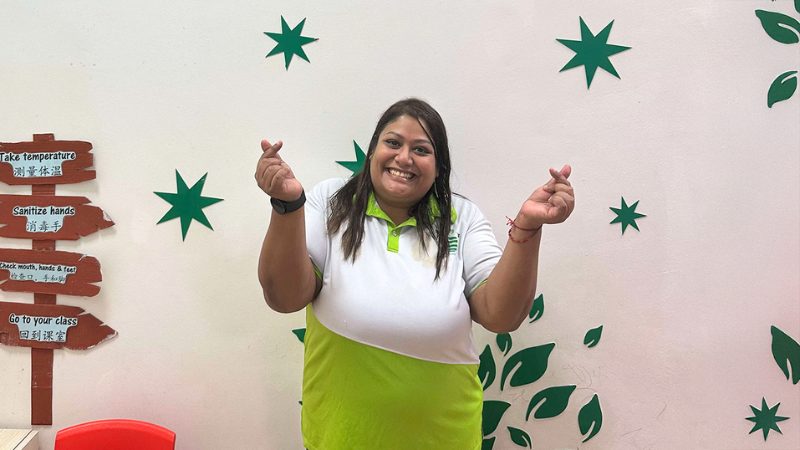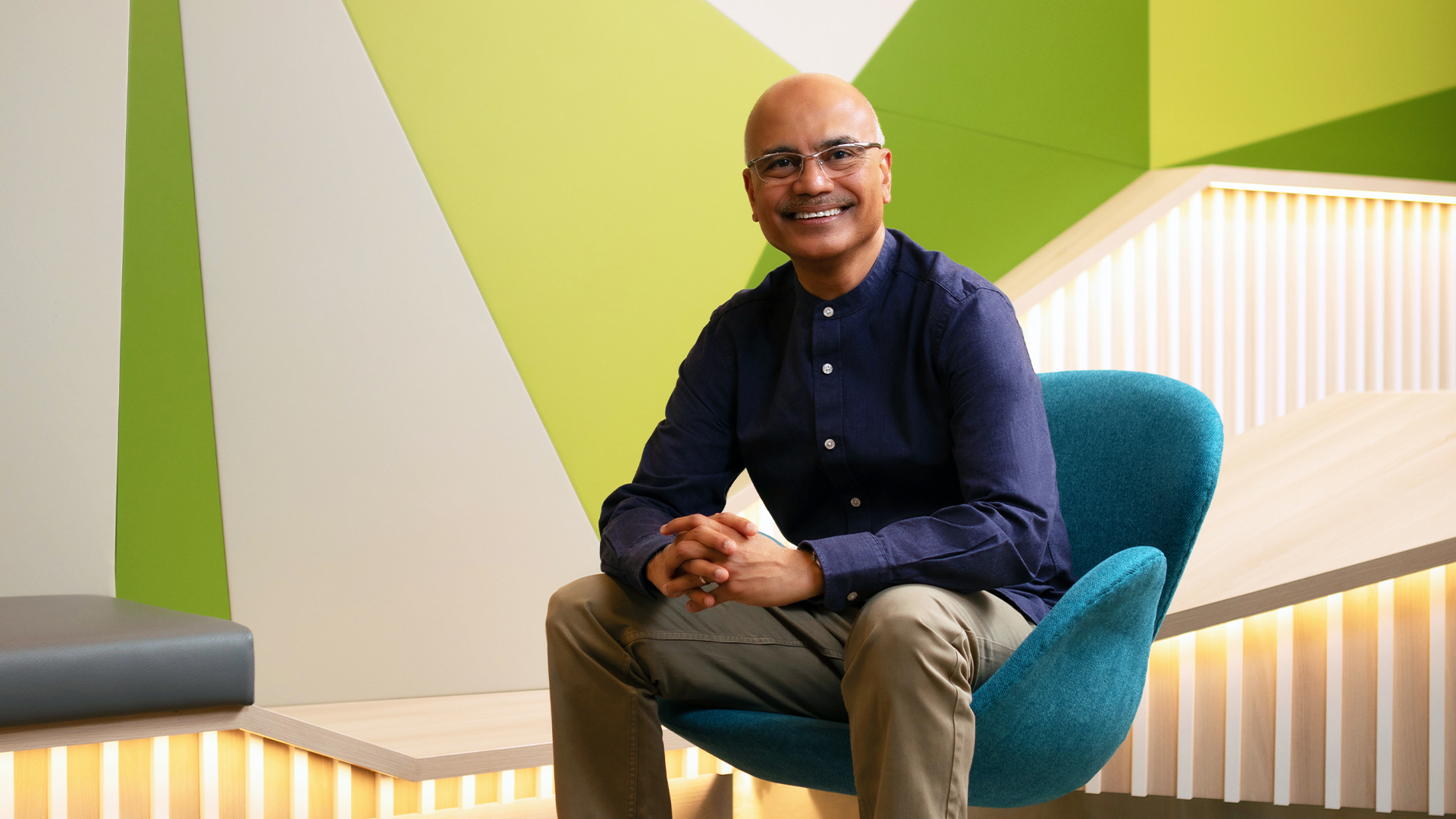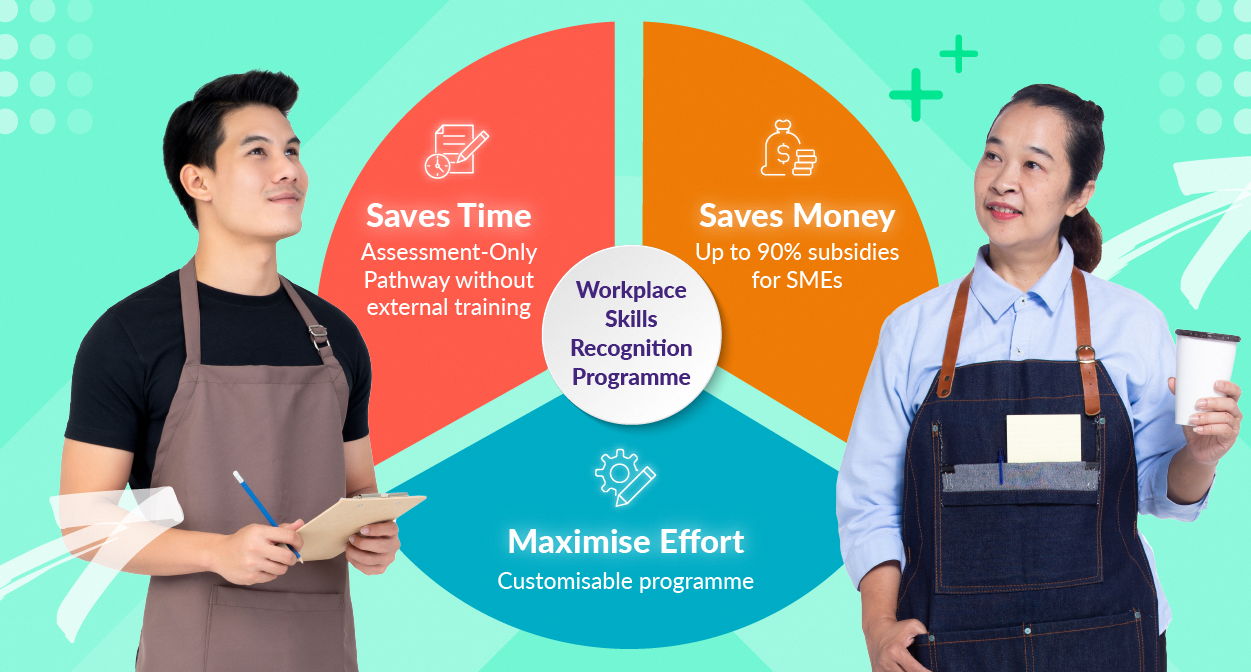
Giving Back Through Digital Transformation
In her 60s, Dr Kwong Yuk Wah continues to pioneer AI Ethics education to inspire lifelong learning across Singapore.
READ MOREMeet individuals and organisations who are taking ownership of their skills development journey and transforming their future. Discover their #skillsfuturestory and be inspired to write your own.

In her 60s, Dr Kwong Yuk Wah continues to pioneer AI Ethics education to inspire lifelong learning across Singapore.
READ MORE
From basic digital skills to management training, and programmes catering to the unique skills needs of each industry – there is no shortage of courses available to help small and medium enterprises (SMEs) upskill their employees.
READ MORE
To embark on his healthcare career, he signed up for the SkillsFuture Career Transition Programme (SCTP) with the HMI Institute of Health Sciences.
READ MORE
From career burnout to renewal: See how Malcolm found new direction through WSG's Polaris programme, setting fresh goals and upskilling for success.
READ MORE
As often as three times a week in the evening, Norazlina Binte Abdul Gani, 46, makes her way to Temasek Polytechnic’s School of Humanities & Social Sciences building.
READ MORE
Discover how Puva successfully changed careers through careful planning and upskilling, proving it's never too late for change.
READ MORE
At age 56, Arnold Lim defies stereotypes in many ways. For one, even as a retiree, he’s still eagerly learning and upskilling. His latest endeavour? To be certified as a fitness coach under the National Registry of Coaches.
READ MORE
After 20 years in QA, Zulaiha found new purpose in healthcare, showing how career coaching and resilience can turn job loss into fresh opportunities.
READ MORE
From marine technician to Teaching & Learning Specialist at Singapore Polytechnic's Media, Arts and Design School, Christian James Sethmohan's learning journey epitomizes resilience and career growth.
READ MORE
After 20 years in Governance and Compliance, Yu Haur found renewed purpose through Polaris career coaching, embracing growth in Risk Management.
READ MORE
Meet Nelly Lee, a Gen X DevOps engineer who is defying stereotypes by ensuring popular shooter and battle royal games stay lag-free, a far cry from her previous role in the travel industry.
READ MORE
Workplace learning has emerged as a powerful tool that both enhances the skills and knowledge of employees, as well as powers the growth and development of organisations.
READ MORE
Putting the Digital Economy under the microscope with two SkillsFuture Fellowships and SkillsFuture Employer Awards recipients
READ MORE
Aslam Sardar, CEO of Institute for Human Resource Professionals (IHRP), shares how HR can support an organisation’s strategic business needs in a changing workplace
READ MORE
Tight cash flows, a lean workforce – these are some common challenges that small and medium enterprises (SMEs) in Singapore constantly grapple with.
READ MORE
We speak with a radiant Selina Sapii on her unexpected entry into the WorldSkills Competition, and her aspirations.
READ MORE
Motivated to excel, Jamaine Teo shares her story of dedication and perseverance to join the fashion industry.
READ MORE